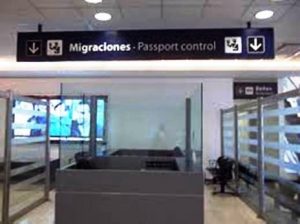Through Decree No. 366/2025, the Argentine Government has formalized the new reforms to the immigration regime and policy and specified the measures to be implemented in the Argentine Republic. These establish changes regarding residence and Argentine citizenship, stricter requirements in the immigration categories for entry and stay in our country, reinforce immigration controls at the borders and within the territory, and introduce modifications concerning access to health, education, expulsion and deportation procedures for foreign citizens, as well as the procedure for requesting and obtaining Argentine citizenship by foreign residents in our country.
In this regard, among the reasons that led to the immigration reform, the National Government stated, among others, the following: “…It is necessary to urgently reform the aforementioned Law No. 25.871 in order to establish an adequate legal framework that protects the rights of Argentine citizens and those immigrants who enter the Argentine territory legally, ensuring immigration regularity and public security.” … “Accordingly, it is essential to establish clear criteria to define the conditions of entry and regular stay in our country, and to provide the necessary guarantees for the effective enjoyment of the rights of those who legitimately settle in it.” and “Ultimately, immigration without regulation and sufficient control poses a risk for both, Argentine citizens and migrants.”
It also emphasized that “…it is essential to modify the minimum requirements to access the different residence categories in the country and to clearly define which rights correspond to each of them… and … granting a permanent residence must be analyzed more rigorously in each case, avoiding it being granted to people who could represent a risk to the country.”
Regarding health care, it stated the following: “As a result of the issues in the health policies of some neighboring countries, it has become a common practice for citizens of those States to come to the Argentine Republic solely for the purpose of accessing the public healthcare system free of charge… and … in many cases, this practice reaches such an extent that immigrants enter Argentine territory, go directly to health facilities and, once treated, immediately return to their country of origin.”
The most important modifications and reforms implemented include the following:
- Foreign citizens entering the country must additionally provide proof of medical insurance to cover their healthcare needs during their stay in the country and sign an affidavit stating the purpose and reason for their entry. Immigration authorities may deny entry if it is proven that the stated reason does not match the actual purpose of the trip.
- Although the three residence categories (transitory, temporary, and permanent) are maintained, the requirements for obtaining them have changed. In this sense, it was established that temporary residence will be granted in cases of family reunification, the granting of permanent residence will be rigorously analyzed in each case to avoid it being granted to people who could pose a risk to the country, and proof of sufficient financial means to support oneself in the country is now required for permanent residence applications.
- Permanent resident status will be recognized for children of Argentine citizens (by birth, naturalization, or option) who are born abroad.
- The validity of the provisory residence will be up to 90 consecutive days, renewable until the immigration process is resolved, but it does not imply a favorable resolution regarding the requested admission nor constitutes valid residence for the purpose of proving ties (arraigo), necessary for obtaining permanent residence or argentine citizenship .
- The Immigration Office may cancel permanent residencies granted if it is proven that the foreign citizen lived outside Argentina for a period equal to or greater than one year, and temporary residencies for being outside the country for six months or more.
- Foreigners shall have the right, even if their immigration status is irregular, to be admitted as students in initial, primary, or secondary educational institutions, whether public or private, national, provincial, or municipal, and their immigration status shall not be grounds for discrimination.
- Foreign permanent residents may access the public health system under the same conditions as Argentine citizens. In public health facilities, medical treatment or regular healthcare will only be provided upon presentation of health insurance or prior payment, as determined by the Ministry of Health. However, in emergency situations, access to social assistance or healthcare cannot be denied or restricted to foreign citizens, regardless of their immigration status.
- Border rejection and deportation measures will be tightened for foreign citizens who have been convicted or have criminal records in Argentina and/or abroad.
- University education will remain free of charge for Argentine citizens by birth or by option and for foreign citizens who have permanent residence in the country. However, public universities may establish charges for educational services for foreign citizens with transitory or temporary residence.
- The Immigration Office will now be responsible for receiving and granting applications for Argentine citizenship. Furthermore, in order to obtain Argentine citizenship, the foreign citizen must prove, among other requirements, having legally and continuously resided for two years in the Argentine Republic without having left the country prior to applying. Also, foreign citizens who can prove having made a significant investment in the country, regardless of their length of residence, may obtain Argentine citizenship.
…
This article has general information content and should not be considered legal advice by IMMIGRAR Immigration Services. For consultations, analysis of specific cases, and personalized immigration legal advice, please contact us at info@immigrar.com

